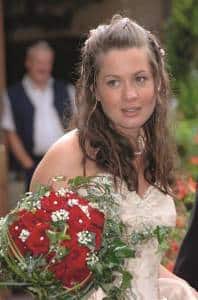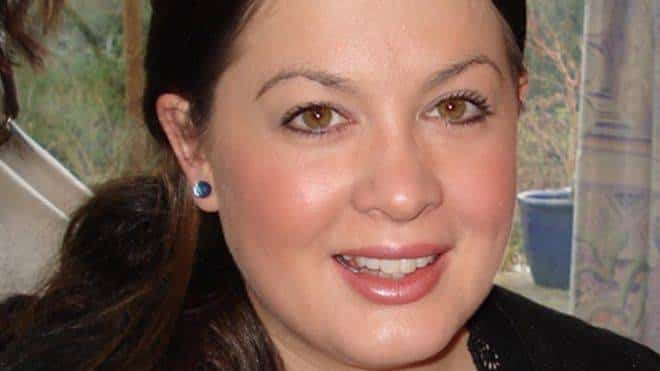
THE death of Frances Cappuccini shortly after childbirth was ‘a result of failures and inadequate diagnosis and treatment’ at Tunbridge Wells Hospital, a coroner concluded on Monday [January 16].
His verdict comes after the Maidstone and Tunbridge Wells NHS Trust was cleared of corporate manslaughter in January last year.
In October 2012, 30-year-old Mrs Cappucini, who used to teach at the primary school in Offham, where she lived, died from a cardiac arrest just hours after she gave birth to her second son, Giacomo by emergency Caesarean.
In a landmark trial, the Trust stood accused of corporate manslaughter and consultant anaesthetist Dr Errol Cornish for manslaughter, but a judge at Inner London Crown Court instructed the jury to acquit the institution, and clear the Dr Errol Cornish of gross negligence, as they had ‘no case to answer’.
A second anaesthetist, Dr Nadeem Azeez, who was in charge of Mrs Cappuccini during the procedure, has never faced trial as he left the country shortly after the incident.
Legal proceedings meant an inquest into the death of the mother of two was halted in 2014 and only restarted again at the beginning of this year, at Gravesend Old Town Hall.
Giving a narrative verdict, coroner Roger Hatch concluded that the Caesarean, after which Mrs Cappuccini lost 2.3 litres of blood due to a postpartum haemorrhage, and the subsequent operation, from which Mrs Cappuccini never regained consciousness, had not been carried out with enough care.
Mr Hatch said: “As a result of my findings, I propose to record that the death of Frances Cappuccini was a result of failures and inadequate diagnosis and treatment of her at Tunbridge Wells Hospital on October 8 and 9 2012.
“The result of this failure led directly to the subsequent series of events which tragically led to the death of Frances.”
A statement issued by Mrs Cappuccini’s family following the inquest said: “Frankie was a wonderful wife, mother, daughter and sister. She was bubbly, intelligent, beautiful, loving and loved.
“Failures of the Maidstone & Tunbridge Wells NHS Trust and those employed by the Trust cost Frankie her life. Nothing can heal that pain.
“At least today, after over four years, the truth is acknowledged.
“We thank the Coroner for giving the matter such serious consideration and also the media for respecting our privacy throughout this process and we ask that we are given the time and space to reflect quietly upon the Coroner’s conclusions and what we have learned at last.”
A statement from the Maidstone and Tunbridge Wells NHS Trust said the trust extends its ‘deepest sympathies’ to the family of Frances Cappuccini.
It adds: “Patient safety remains of paramount importance to the trust. The trust has however recognised from the start that there were aspects of Frances’ care that fell short of the standards that the trust would expect and we wish to once again sincerely apologise to the family for this.
“As a direct result of Frances’ tragic death, the trust has made a number of changes to its processes that have further improved patient safety and experience.
“The trust will carefully consider all of the evidence heard at the inquest to ensure that any necessary changes which have not already been made are fully addressed.
“The trust will continue to do everything that it can to ensure that we provide the highest possible standards of maternity care.”
What the coroner heard:
CORONER Roger Hatch heard during the two-week inquest how Frances Cappuccini had struggled in labour for 12 hours before she was able to have a Caesarean section.
However, hours later she was forced to undergo emergency surgery when it emerged that a surgeon had failed to remove her entire placenta.
Mrs Cappuccini never awoke from the surgery, and lost so much blood she died less than seven hours later of a heart attack at 4.20pm.
Her husband, Tom Cappuccini, said he ‘never had a chance to say goodbye’ to his wife, and criticised the conduct of the midwives for not fulfilling his wife’s request for a Caesarean section straight away, leading to 12 hours of labour without progress.
Consultant anaesthetist Dr Errol Cornish told the inquest stimulator drugs required to help restart her breathing were unavailable to him in the operating theatre, meaning ten minutes were lost after two doses had to be found.
Dr Cornish, who had to leave another patient on the operating table to come to Mrs Cappuccini’s aid, suggested Dr Nadeem Azeez had removed her ventilation tube too early. He also had to wait for between 35 and 40 minutes for his requested ‘urgent help’ from an on-call anaesthetist when it should have taken ‘maybe five minutes’.
He said the teacher’s death was to, his mind, ‘not inevitable’, and told the inquest he had thought of the incident every day since it happened.
On Monday [January 16] the inquest heard a statement from Dr Azeez, who has not been contactable since 2014, in which he sent his condolences to Mrs Cappuccini’s family.
Dr Azeez, who is believed to be residing in Lahore, Pakistan, said he has suffered from ‘depression, insomnia and flashbacks’ following the tragedy and has relinquished his registration as a doctor.








